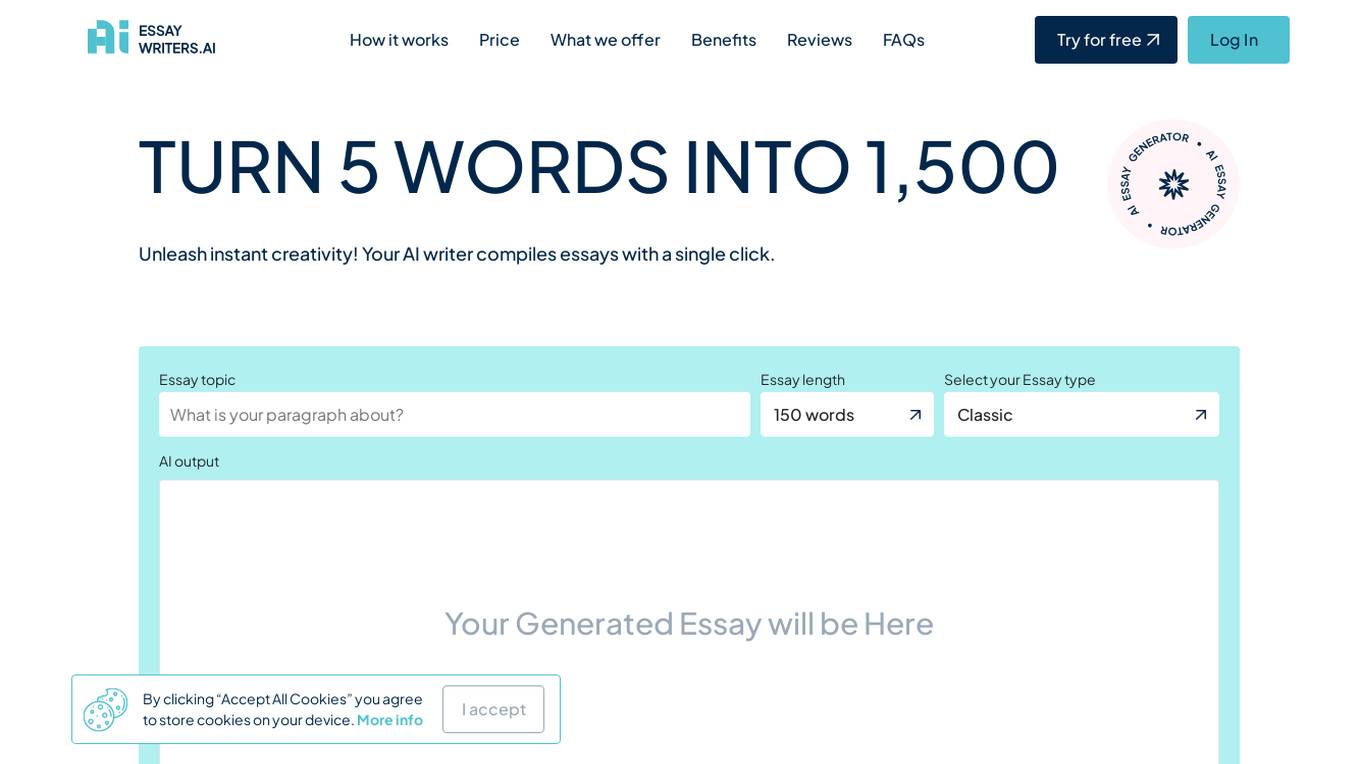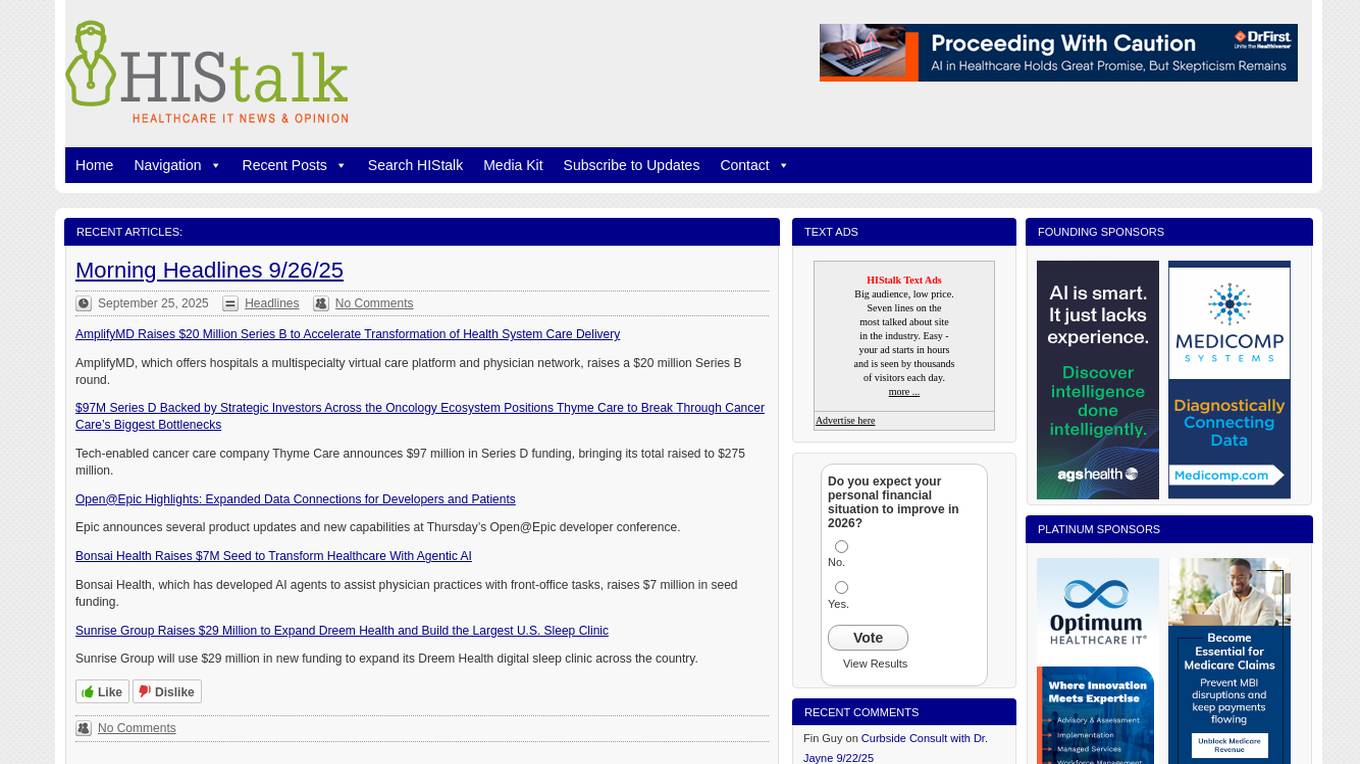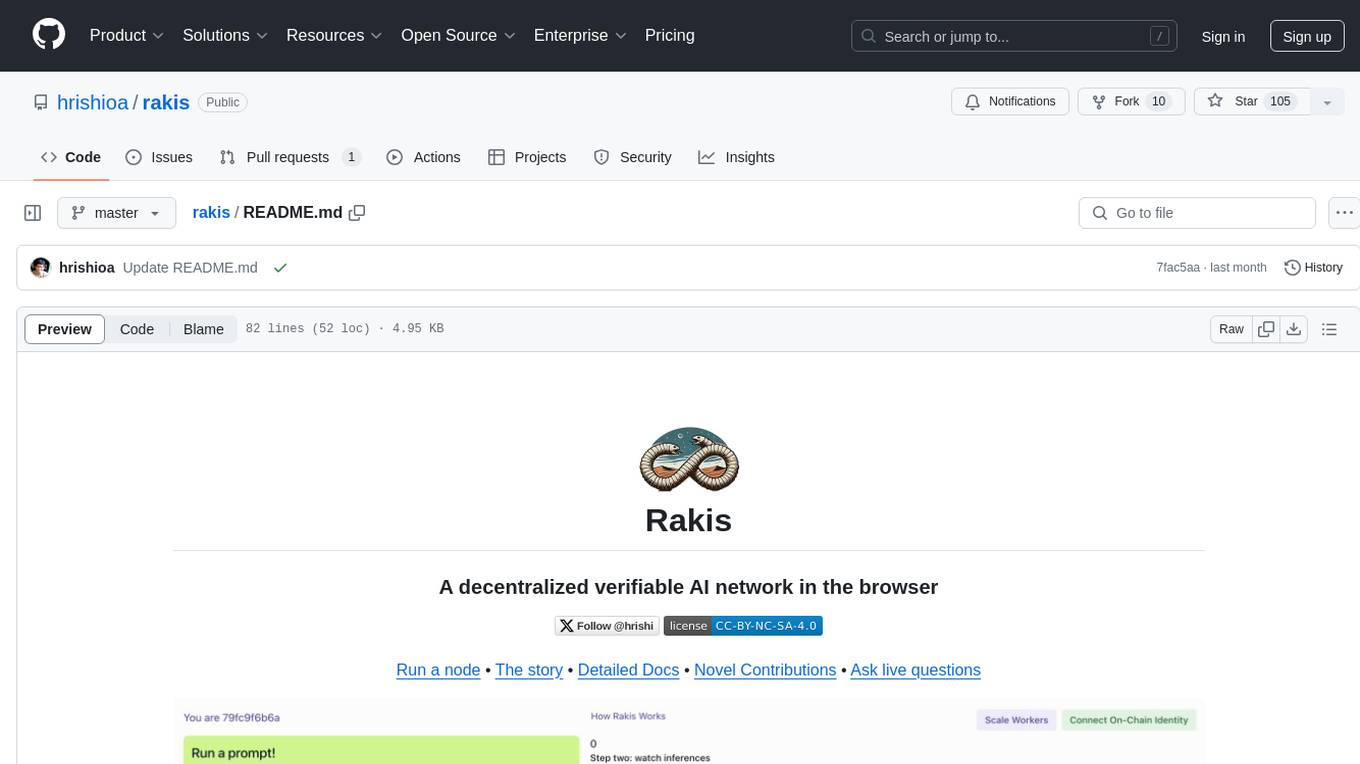Best AI tools for< Arrive At Consensus >
5 - AI tool Sites

EssayWriters.ai
EssayWriters.ai is an AI essay writing tool that allows users to generate essays of various lengths and types with the help of artificial intelligence. Users can specify their topic, word count, and essay type to receive a tailored essay that meets their requirements. The tool ensures plagiarism-free content and offers both free and premium plans for users to access its features. With a user-friendly interface, EssayWriters.ai aims to assist individuals in creating high-quality essays efficiently and effectively.

FutureRise AI
FutureRise AI is an AI application that specializes in building production-grade AI systems for businesses. They develop voice agents, workflow automation, and enterprise AI systems that are rigorously tested and designed to run seamlessly, delivering measurable results. The application focuses on real-world solutions and ROI, catering to industries like real estate, manufacturing, and service businesses. FutureRise AI works closely with clients to implement AI solutions that automate processes, handle customer communication, and improve lead conversion rates.

Adam AI
Adam AI is the world's first AI C-Suite executive, providing organizations with advanced predictive analytics, intelligent automation, and real-time insights to optimize strategic planning, streamline operations, and enhance customer experience. Adam leverages cutting-edge sentiment analysis and market intelligence to empower leadership with actionable insights, driving unprecedented productivity and financial performance.

Healthcare IT News Hub
The website page text provides a glimpse into the healthcare IT industry, covering topics such as telehealth, AI advancements, and patient care. It discusses various news articles, acquisitions, funding rounds, and research findings related to healthcare technology. The content highlights the importance of telehealth, AI integration, patient engagement, and the impact of technology on healthcare delivery.

PandaRocket
PandaRocket is an AI-powered suite designed to support various eCommerce business models. It offers a range of tools for product research, content creation, and store management. With features like market analysis, customer segmentation, and predictive intelligence, PandaRocket helps users make data-driven decisions to optimize their online stores and maximize profits.
1 - Open Source AI Tools

rakis
Rakis is a decentralized verifiable AI network in the browser where nodes can accept AI inference requests, run local models, verify results, and arrive at consensus without servers. It is open-source, functional, multi-model, multi-chain, and browser-first, allowing anyone to participate in the network. The project implements an embedding-based consensus mechanism for verifiable inference. Users can run their own node on rakis.ai or use the compiled version hosted on Huggingface. The project is meant for educational purposes and is a work in progress.